8 Foods You Should Avoid When You Have Stomach Pain


Reviewed and approved by the doctor José Gerardo Rosciano Paganelli
Stomach pain is a very common symptom that’s usually caused by digestive issues due to microorganisms or other substances in your food.
In other cases, it could be due to an inflammatory issue or imbalances caused by stress and anxiety, according to this study carried out by the Ramón y Cajal University Hospital.
While it’s not usually a serious complication, it can be a very uncomfortable problem because it’s usually accompanied by gas, acidity, and other symptoms related to indigestion.
In addition, stomach pain can be caused by a food intolerance, which, in turn, can also trigger constipation and diarrhea.
Because of this, you need to stay alert and avoid the foods that make it worse, while also taking remedies to relieve it.
In today’s article, we want to share the top eight foods you should avoid when you have stomach pain so that you can limit your intake. Let’s find out what they are!
1. Dairy products
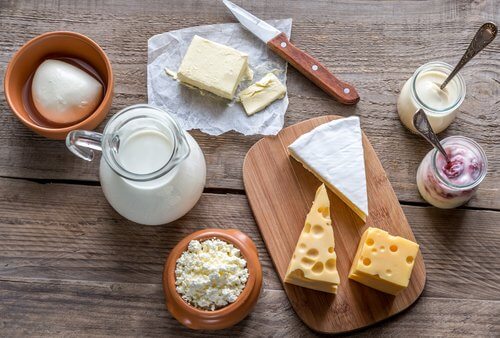
Dairy products are part of the regular diet for millions of people. They’re delicious foods that have essential nutrients to protect your body.
However, they’ve also been classified as inflammatory agents, particularly for those who suffer from lactose intolerance, according to this investigation carried out by the Ramón y Cajal University Hospital in Madrid.
Lactose can take a long time to break down, and when it overloads your stomach it causes inflammation, pain, and other digestive discomfort.
So, even if you can usually eat them on a regular basis, it’s best to avoid them if you’re suffering from digestive problems.
Do you want to know more? See: Make Gluten-Free, Lactose-Free Crackers
2. Fats
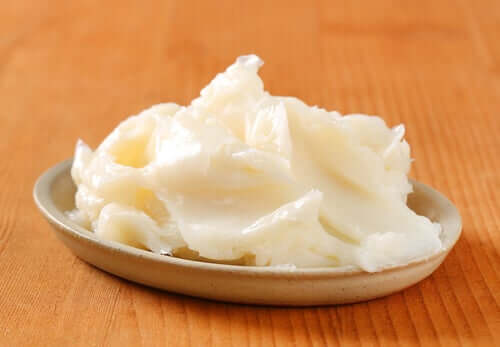
When you have stomach pain, you should limit your consumption of fatty foods as much as possible, as they slow down your digestion.
When they’re absorbed by your intestines, they reduce your body’s ability to control inflammatory processes, according to this investigation by the National University of Colombia. This can increase the severity of the pain or indigestion.
Fried foods, ice cream, and meat may slow down digestive transit and lead to bouts of constipation and inflammation.
3. Spices
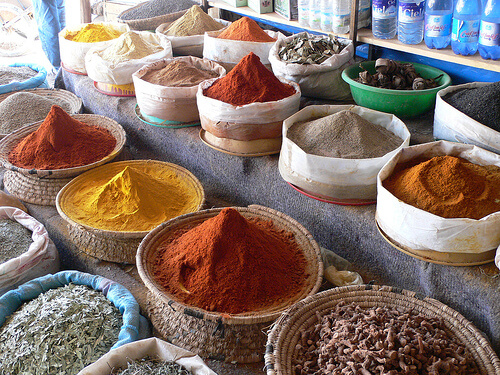
Seasonings contain some very beneficial nutritional properties, but some of them are also irritating to your stomach and should be avoided if you’re experiencing pain.
Eating food that’s too spicy can stimulate the production of stomach acids that lead to acid reflux and burning sensations. This was confirmed in information obtained from the La Rioja Government Health platform.
While it’s fine to consume them in moderation, they should be avoided completely when you’re having indigestion or any other digestive problems.
4. Spicy foods
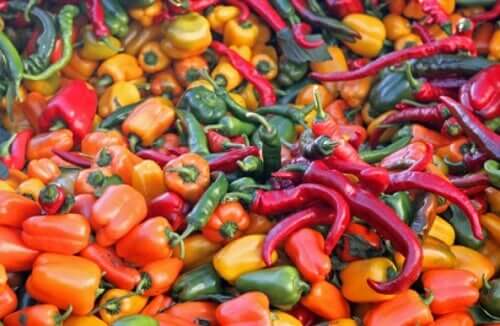
Just like spices, it’s believed that spicy foods can irritate your stomach lining and increase your production of stomach acids.
However, recent investigations, like the one published in this study by the Veterans Administration Medical Center and the Baylor College of Medicine in Houston, state that there is insufficient evidence to conclusively prove whether or not these types of food can damage the stomach lining.
If you’re suffering from stomach pain, it’s best to avoid them completely and, in general, only eat them in small quantities.
5. Sugars and sweets
The addition of refined sugars and any products that contain them can affect your metabolic activity and interfere with digestive processes.
Sugars feed harmful bacteria that alter the pH of your intestines, as confirmed in this study carried out by the Virgen del Rocío University Hospital.
On the other hand, you should be aware that the excessive consumption of sugary products may slow down your body’s absorption of other nutrients and can lead to weight gain.
Visit this article: 9 Tips to Detox Your Body Naturally
6. Caffeine

Foods and beverages that contain caffeine can increase your tendency to suffer from acid reflux, according to this study by the Pontifical Catholic University of Chile, because they may irritate the stomach and affect digestion.
They slow down your intestinal activity and can cause constipation, pain, and inflammation.
Some sources of caffeine that you should avoid include:
- Coffee
- Cola drinks
- Black tea
- Energy drinks
7. Carbonated sodas

Carbonated sodas are the enemies of metabolic and digestive health. These beverages should be avoided because they may irritate your stomach lining and increase the production of gas. They also contain high levels of sugar. As a result, they can contribute to the development of cavities, as confirmed in this investigation by the University of Camaguey in Cuba.
They contain chemicals like citric acid, orthophosphoric acid and sodium benzoate, which have been associated with inflammation and stomach disorders.
8. Refined flour
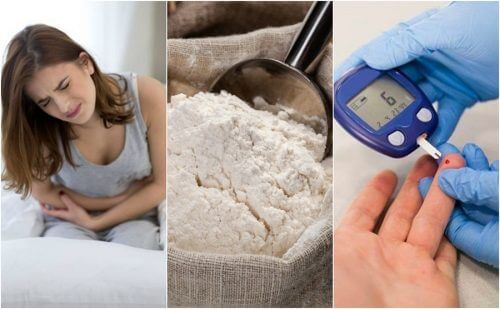
Carbohydrates that contain refined flour may slow down the digestive process, increase inflammation, and cause pain and feelings of heaviness.
When you eat these foods while you have a stomach ache, it can worsen your symptoms and make them harder to treat. This was confirmed in a study conducted by the General Calixto García University Hospital in Cuba.
Instead, it’s a better idea to eat whole grains, because their fiber content supports healthy digestion, as indicated in this information from the Mayo Clinic.
Are you suffering from stomach pain? Keep the foods we mentioned today in mind and try to avoid them until you’re completely better. If symptoms persist, be sure to follow the advice of your doctor.
All cited sources were thoroughly reviewed by our team to ensure their quality, reliability, currency, and validity. The bibliography of this article was considered reliable and of academic or scientific accuracy.
Bosch, A. (2004). Acidez y Antiácidos. Educación Sanitaria.
This text is provided for informational purposes only and does not replace consultation with a professional. If in doubt, consult your specialist.








